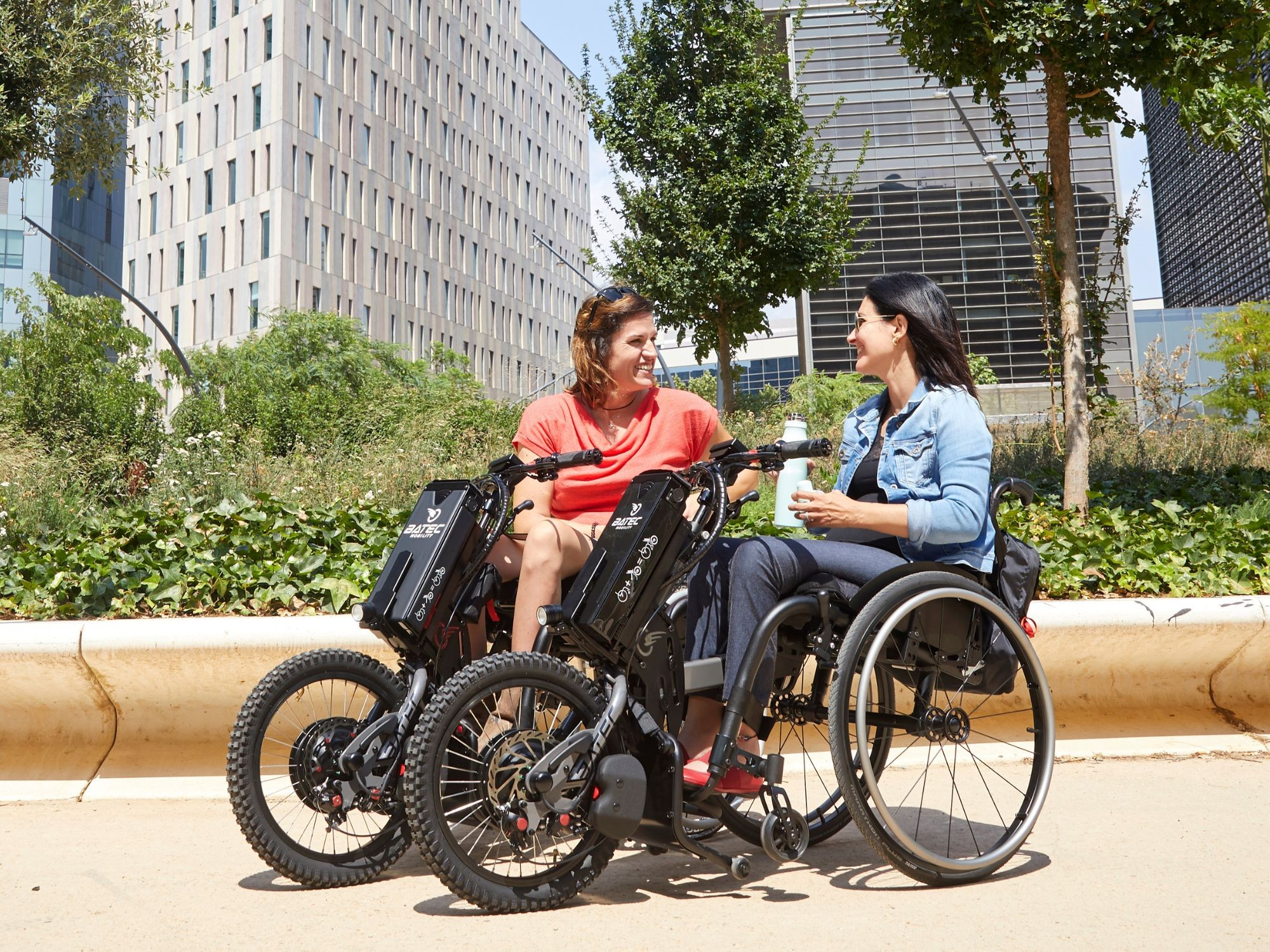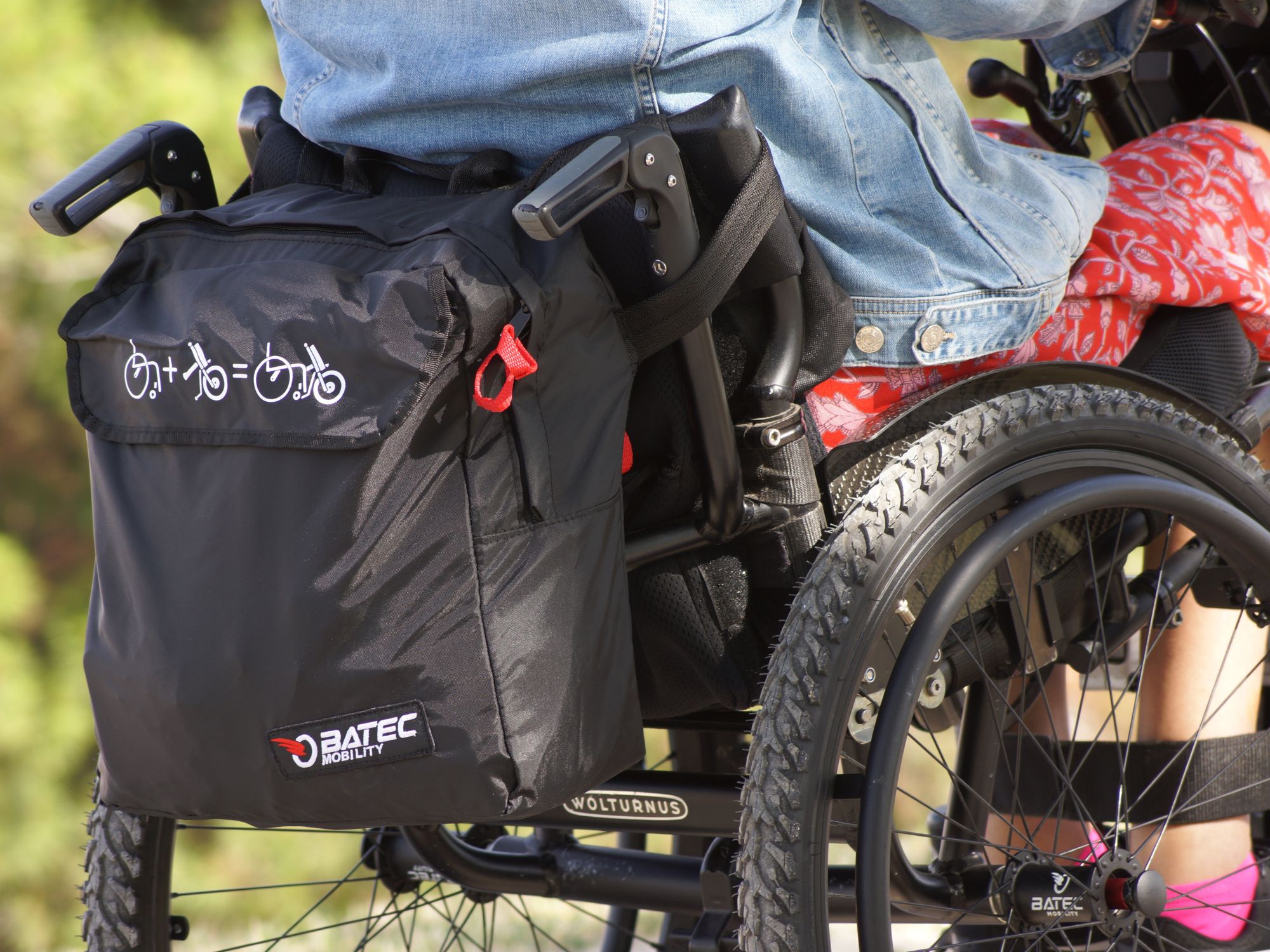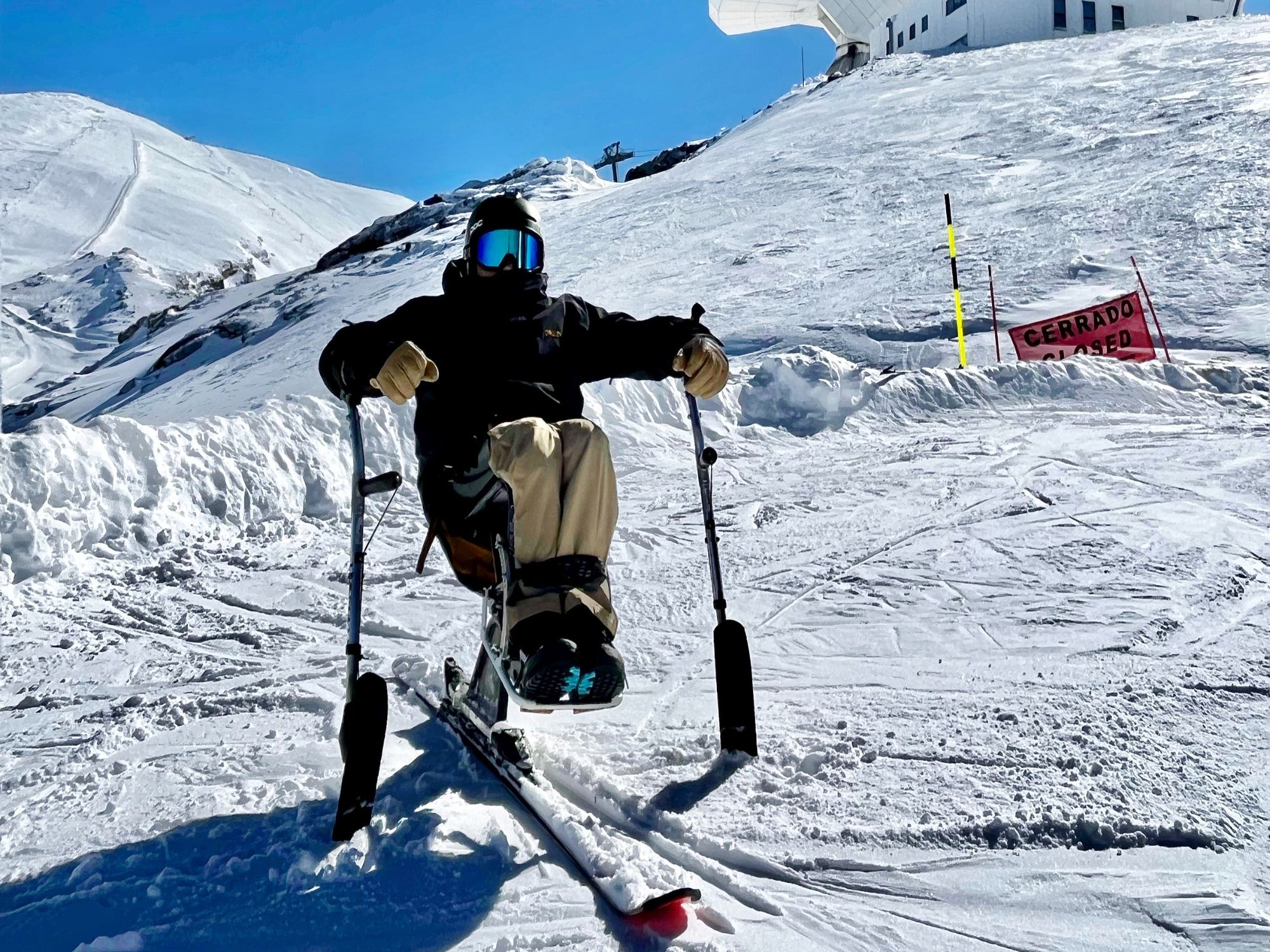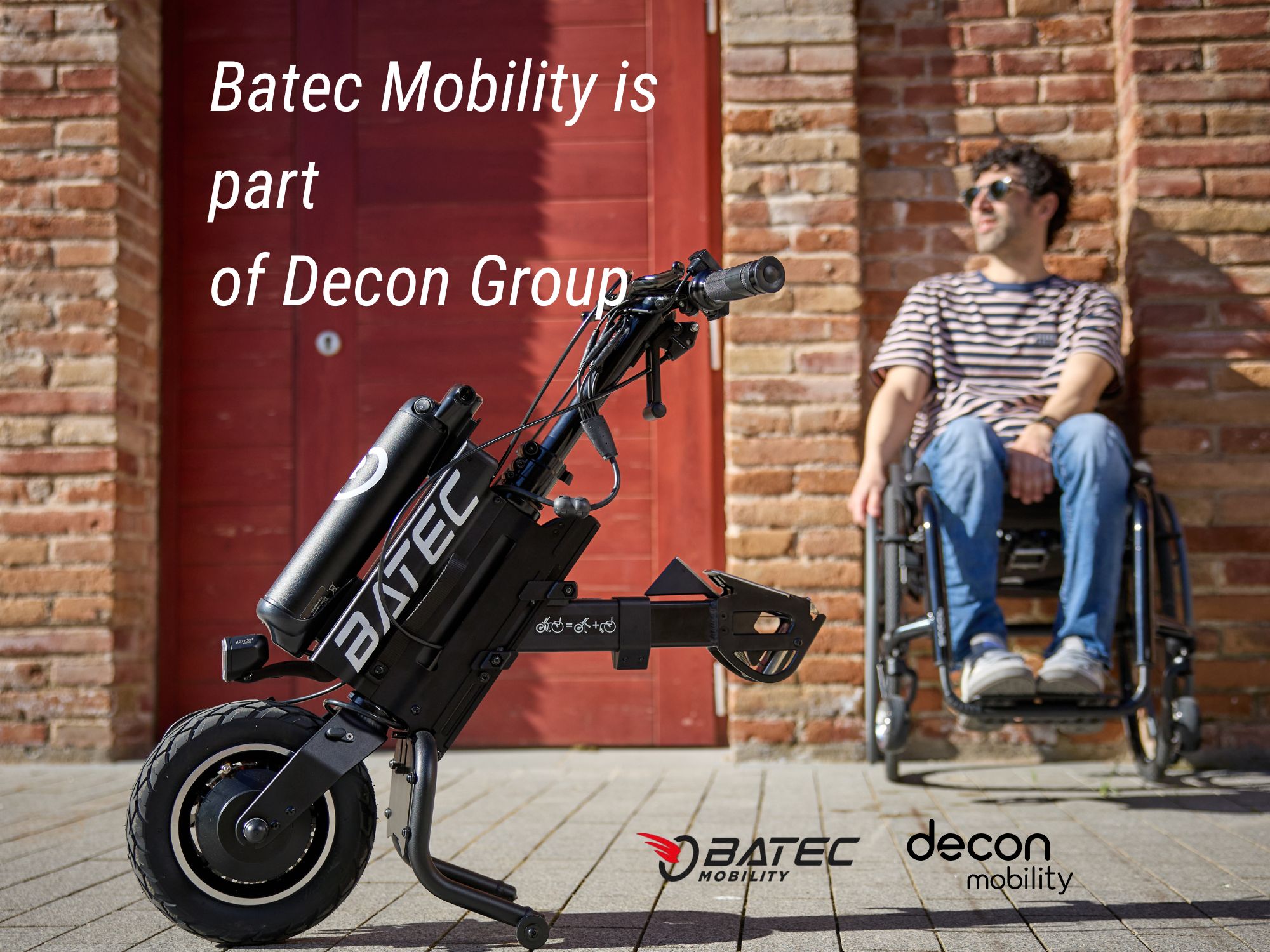At Batec Mobility, we are dedicated to enhancing the mobility and independence of people with disabilities. To achieve this, we produce the electric handbike for wheelchairs, an innovative device that transforms the lives of wheelchair users. In this article, we will explore everything about handbikes—their features and the benefits they offer, with a particular focus on our Batec models. We will also examine how hybrid handbikes are an excellent tool for physical activity.
What is a handbike?
A handbike that attaches to a wheelchair is a device that converts your wheelchair into a motorised tricycle. Designed specifically for people with reduced mobility, it easily attaches to your wheelchair, enabling smooth, speedy and autonomous movement. Wheelchair handbike attachments not only serve as a mobility tool but also promote inclusion and independence, providing users with a mobility experience comparable to that of a person without a disability.
Types of handbikes
Manual handbikes: These models are powered solely by the user’s arm strength, making them ideal for those who seek more intense physical exercise and have the strength to propel themselves manually.
Electric handbikes: Equipped with an electric motor, these handbikes facilitate easier movement, especially on challenging terrain or over long distances. They are perfect for those looking for a less physically demanding option.
Hybrid handbikes: Combining the advantages of manual and electric models, hybrid handbikes allow users to choose between manual propulsion or motorised assistance as needed. Hybrid handbikes offer great flexibility, adapting to the user’s activity.
Characteristics of the handbike
Wheelchair handbikes boast a variety of features that make them both unique and highly functional:
- Attachment system: They easily connect to a wheelchair, converting it into a tricycle. This quick and straightforward attachment system is crucial for user comfort and convenience.
- Manual or electric drive: Depending on the model, wheelchair handbike attachments can be powered manually, by an electric motor or by a combination of both. This flexibility allows users to select the option that best fits their daily requirements.
- Ergonomic design: Designed for comfort and ease of use, wheelchair handbikes come with adjustable seats, adaptable handlebars and other features that ensure a correct and comfortable posture while riding.
- Terrain versatility: Suitable for a range of terrains, from urban surfaces to rough tracks, some models are specifically engineered for off-road use, enabling users to explore nature without restrictions.
- Customisation accessories: Certain brands offer customisation options to cater to individual needs, including large front bags, extra weight for enhanced traction and straps for lifting with a car hoist.
Safety and stability
Safety is a key priority in handbike design. Certified medical models feature advanced safety features to protect users:
- High-efficiency brakes: Handbikes are equipped with disc brake systems that offer excellent control, even on steep descents.
- Robust structure: Constructed from durable, high-quality materials, handbikes for wheelchairs are built to endure daily use and various weather conditions.
- Suspension systems: Some models include suspension systems to absorb impacts and deliver a smoother ride, particularly on uneven terrain.
Features of the Batec handbike
At Batec Mobility, our electric handbikes stand out for their quality and innovation. We are dedicated to providing products that enhance mobility while meeting high standards of quality and design to fit our users’ lifestyles. Here are some key features of our Batec electric handbikes:
- Easy attachment: Our quick and simple attachment system allows users to connect and disconnect the electric handbike from the wheelchair in under three seconds. The unique anchoring design ensures that all users, even those with high-level injuries, can operate it independently.
- Powerful motor: Our electric handbikes for wheelchairs are equipped with powerful motors that guarantee excellent performance and range. These motors are designed to provide sufficient power even on steep inclines.
- Long battery life: Equipped with high-capacity lithium batteries, our handbikes for wheelchairs can cover long distances on a single charge. Fast-charging technology also reduces waiting time, allowing users to enjoy more time on the move.
- Safe braking system: Featuring dual disc brakes, our Batec handbikes provide optimal and secure control in all conditions. This braking system is essential for maintaining safety during all types of riding.
- All-in-one LCD screen: Every model includes a control screen that displays key information such as speed, battery level and distance travelled. This user-friendly screen offers real-time data for better control and awareness.
- Compact and lightweight design: Batec handbikes are designed for easy transport and minimal space usage. They are compact enough to be carried in a car or stored without difficulty. Additionally, some models can be folded for even greater compactness.
Innovations at Batec Mobility
At Batec Mobility, we are continually innovating to improve our products. Notable innovations include:
-
- Smart control technology: The Batec Hybrid 2 model features control systems that automatically adjust motor assistance based on terrain conditions and the user’s desired speed, providing support precisely when needed.
- Thoughtful design: Our Batec electric handbikes undergo careful design to ensure they are visually appealing. We prioritise aesthetics as a key aspect of the user’s image, striving for a refined and attractive design in every model.
- Customised options: We offer handlebar adaptations for paraplegics, quadriplegics and hemiplegics, ensuring the wheelchair handbike fits the user rather than requiring adjustments from the user. We are committed to aligning our products with users’ lifestyles and needs, incorporating continuous improvements.
Using the handbike for wheelchairs for physical activity
Handbikes not only enhance mobility but also serve as an excellent tool for physical activity. They can be used for:
Cardiovascular exercise
Using a wheelchair handbike is an effective way to perform cardiovascular exercise. The continuous arm pedalling elevates the heart rate, improving heart health and blood circulation. This is especially beneficial for individuals with reduced mobility, allowing them to maintain good cardiovascular health without relying on their legs.
Muscle strengthening
Regular use of a wheelchair handbike attachment strengthens the muscles in the arms, shoulders and back. Like traditional cycling, the repetitive motion and resistance of pedalling contribute to muscle development. This strengthening is crucial not only for enhancing physical capacity, but also for facilitating daily activities and reducing the risk of injuries.
Rehabilitation
Handbikes are valuable tools in rehabilitation programmes. They help improve strength and coordination and are frequently used in physiotherapy for individuals recovering from injuries or surgeries. Controlled use of a wheelchair handbike can aid in restoring range of motion and muscle endurance, speeding up the recovery process.
Recreational activities
Handbikes enable individuals with disabilities to participate in outdoor activities, such as walks and excursions, promoting an active and healthy lifestyle. Electric handbikes open up a world of recreational possibilities, from simple park strolls to more adventurous nature trails. This ability to engage in recreational activities enhances the quality of life and emotional well-being of users.
Sporting competitions
Handbikes are used in sporting competitions, offering an inclusive option for participating in cycling events and handbike racing. Numerous competitions include categories for handbikes, allowing individuals with disabilities to compete and showcase their skill and determination. This inclusion in competitive sports also helps to increase the visibility and acceptance of people with disabilities in the sporting community.
Psychological benefits
In addition to physical benefits, using a wheelchair handbike attachment positively impacts mental health. The independence and freedom provided by a handbike for wheelchairs can significantly boost the user’s self-esteem and confidence. Participating in physical and recreational activities can also reduce stress, anxiety and depression, contributing to overall better mental health.
Community impact
Handbike use also positively impacts the community. They promote inclusion and visibility of individuals with disabilities, fostering greater understanding and acceptance. Seeing people with disabilities actively participating in society challenges stereotypes and inspires others to seek solutions to improve accessible mobility and inclusion.






